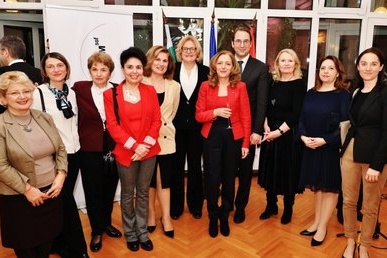Sponsored Content
Austria Opens New Cultural Forum in Sofia
The Austrian Cultural Forum was officially opened in Sofia. With the inauguration of this new center for art and culture, Austria is sending a further signal for bilateral exchange with Bulgaria and for its commitment to cultural diplomacy.
 Secretary General for Foreign Affairs Nikolaus Marschik and Bulgaria's Deputy Foreign Minister Elena Shekerletova and Austria's Ambassador to Bulgaria, Andrea Ikić-Böhm, officially opened the Austrian Cultural Forum Sofia with a festive ceremony. / Picture: © BMEIA/Plamen Kolev
Secretary General for Foreign Affairs Nikolaus Marschik and Bulgaria's Deputy Foreign Minister Elena Shekerletova and Austria's Ambassador to Bulgaria, Andrea Ikić-Böhm, officially opened the Austrian Cultural Forum Sofia with a festive ceremony. / Picture: © BMEIA/Plamen Kolev
Austria has been actively involved in Bulgaria for many years to strengthen its soft power and deepen bilateral relations through cultural initiatives. A central instrument in this is the Austrian Cultural Forum Sofia, which serves as a platform for cultural exchange and presents contemporary Austrian art in all its forms of expression.
The opening ceremony was attended by the…
or Log In
Fast News Search





